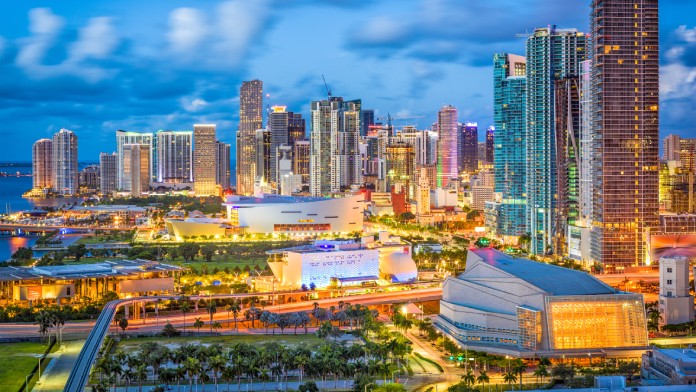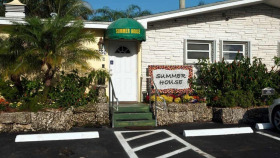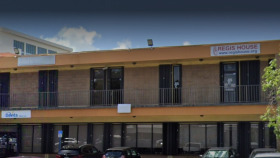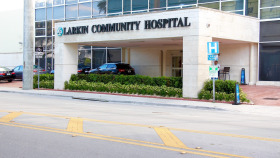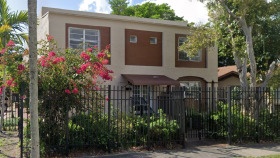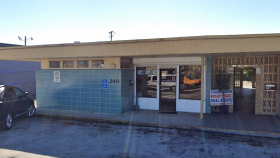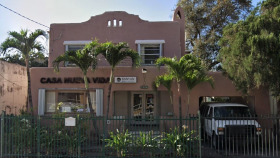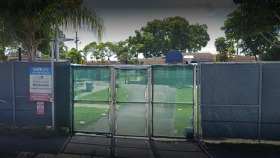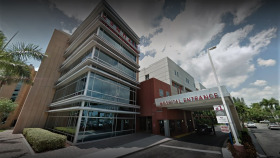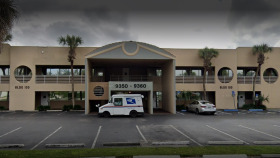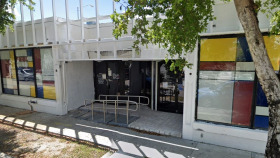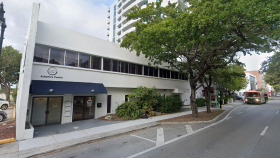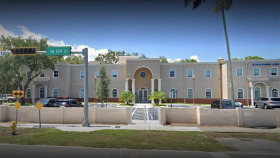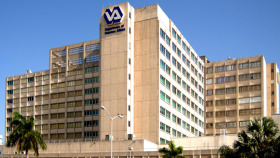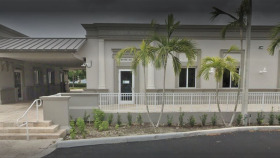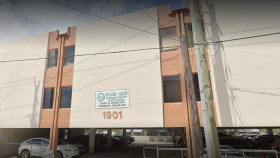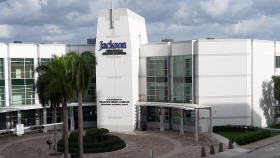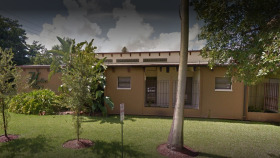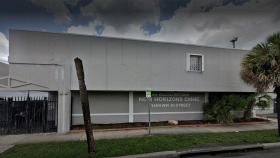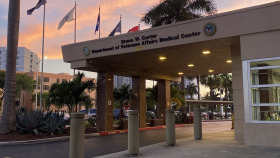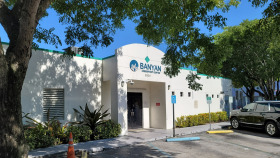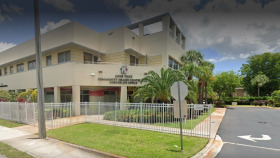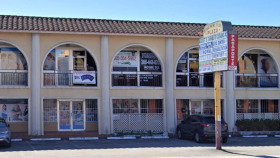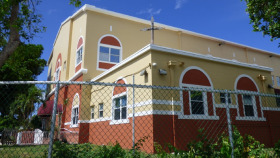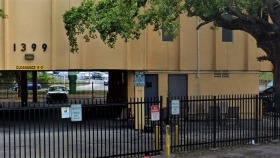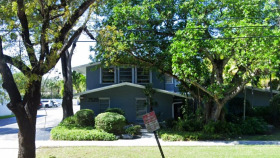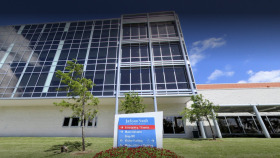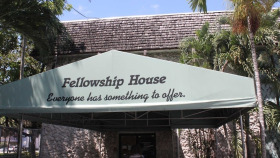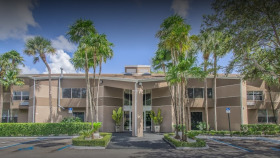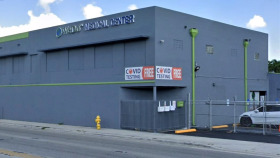Expert Insights
Students from the University of Miami Miller School of Medicine recently won the Representation in Research award from the American Society of Addiction Medicine for their student-led research on the availability of buprenorphine-naloxone (Suboxone) in South Florida’s outpatient pharmacies. Medical students served as staff members for a clinic run by the Miller School with a focus on providing medical care for ID drug users. And it was through that experience that Miller School medical students Maria Rodriguez and Alina Syros learned that FDA-approved medications for opioid use disorder can dramatically reduce the mortality rates of those who are dependent on opioids like fentanyl, heroin, or oxycodone. Despite the life-saving possibilities, locals still face enormous barriers to treatment, which prompted the students to advocate for proper access to buprenorphine. They interviewed 200 randomly selected pharmacies in the area, with the majority being large national chains. When the data was finalized, the students found that 62% of pharmacies had no buprenorphine available. Rodriguez and Syros say the next step is to use their findings to make meaningful change at the local pharmacy level to bridge the gaps in treating opioid addiction.
~ Rita Milios
How Expensive is Drug Rehab in Miami?
The cost of drug rehab in Miami will vary based on several factors, including
- Location
- Types of services
- Amenities
- Insurance plans
- Funding resources
Some alcohol rehabs in Miami are run by the State of Florida and may offer free Miami drug rehab for those who qualify. Other drug rehabs in Miami are secluded and, on the beach, with every luxury that you can imagine.
Low-Cost and Free Rehabs in Miami
You do not have to be able to afford alcohol rehab in Miami to get treatment for substance abuse. Even if you don’t have insurance, you can attend Miami drug rehabs and Miami alcohol rehabs. Visit the Florida Department of Children and Families website to find state-funded contacts.5
Each program may have different requirements, including proof you reside in Miami and information showing your income.
Another excellent resource for finding low-cost and free drug rehabs in Miami is the Community Action and Human Services program, rehabilitative services through the County government:6
Medicaid, Medicare, and private insurances expanded their coverage for Miami drug rehabs and Miami alcohol rehabs with the Affordable Care Act. Using your insurance, even partially, can greatly reduce alcohol rehab in Miami costs.
How Do I Pay for Addiction Treatment in Miami?
Alcohol rehabs in Miami and drug rehabs in Miami apply for and utilize funding resources. For example, Miami Dade county receives funding from federal resources. The Substance Abuse and Mental Health Services Administration (SAMHSA) awarded Miami Dade county funding to expand its drug court program for participants and family members.7
When federal funding is not available, if you don’t qualify for free drug rehab in Miami, or you don’t have insurance, there are still plenty of options.
Choose a Program That Offers Payment Plans
Most Miami drug rehab programs offer payment plans to help you afford services when you need them without worrying about the total cost right away. Payment plans at a drug rehab in Miami are like most other payment plans. You agree to pay an unlimited amount to the Miami drug rehab or Miami alcohol rehab provider. The provider agrees to accept portions of the total until you meet the balance.
To find a program that offers payment plans, you can contact the admissions department of the facility in which you are interested. You can also search online for “alcohol rehabs near me that accept payment plans” or “drug rehabs near me that accept payment plans.” You can also contact the Miami Dade Community Action and Human Services Department.
Apply for a Rehab Scholarship
Alcohol and drug treatment centers provide drug rehab in Miami scholarships to help you pay for inpatient and outpatient services when you cannot afford them or lack insurance. Scholarships may pay only a portion of the total or the entire cost.
The best way to learn more about scholarships is to contact the Miami drug rehab facility. They often receive calls about the cost of drug or alcohol rehab in Miami and are happy to explain your options and how to apply for a scholarship. Other contacts who may be familiar with scholarships available at drug rehabs in Miami include:
- Probation or parole officers
- School counselors and administrators
- Miami Dade County rehabilitative services program
- Local police officers
- Local mental health counselors or social workers
- Churches and non-profit organizations
Find a Sliding Scale Rehab Program
Sliding fee scale programs offer you a fee for services according to your current income—you pay what you can afford. Because sliding fee scales will vary for each alcohol rehab in Miami, it’s best to contact the program directly to determine its specific guidelines. You can meet with an admissions coordinator who will better understand your resources, or lack of resources, and create a plan that works.
Admissions counselors may also know of additional area programs to help pay for your alcohol or drug rehab in Miami.
How Does Miami Compare in Alcohol and Drug Use?
Miami, Florida is one of the major entry points for illegal drugs into the United States. Unfortunately, this also makes Miami one of the nation’s addiction hotspots. Like the rest of the nation, Miami is facing issues with opioid addiction, fatal opioid-related overdoses, increased strain on their healthcare system, and overall higher drug abuse rates. In fact, from January 2021 to June 2021, Miami saw 166 fentanyl-related deaths.16 Thankfully, there are a total of 65 accredited alcohol and drug rehabs in Miami offering both inpatient and outpatient treatment options.
The 2020 Community Health Needs Assessment surveyed Miami residents about their health, including the consumption of alcohol and other substances, to identify areas that need the most help. The survey revealed that close to 32% of Miami residents were impacted by substance abuse or substance use disorders. Below are more findings from the survey:1
- 9% used illicit drugs in the month before the survey.
- 8% used prescription opioids in the year before the survey.
- 6% of accidental drug overdose deaths.
- 8% participated in binge drinking.
- 1% have sought Miami drug rehabs or Miami alcohol rehabs.
- 9% have been negatively affected by alcohol or drug abuse.
Nearly half of respondents claim alcohol misuse is the most significant concern. The number of binge drinkers is higher in Florida, which has 15.8% binge drinkers, and in the United States overall, with 23.6% binge drinkers.1
Overdose Deaths in Miami
More than 7,000 deaths in Florida involved the misuse of prescription or illicit drugs. Below are the 2020 findings on the specific deaths in Miami.2
Fentanyl
In 2020, there were 301 overdose deaths involving fentanyl and 33 overdose deaths involving fentanyl plus other substances. Further investigation found age variations in deaths explicitly caused by fentanyl, including:2
- One death under the age of 18
- 38 deaths between 18 and 25
- 71 deaths between 26 and 34
- 104 deaths between 35 and 50
- 87 deaths over 50
Heroin
Heroin by itself resulted in 42 drug overdose deaths in 2020. However, when combined with other substances, it led to 2 deaths. For some, heroin was the leading cause of death, and for others, another substance caused the death. Age differences among overdose deaths specifically caused by heroin include:2
- Three deaths between 18 and 25
- 11 deaths between 26 and 34
- 18 deaths between 35 and 50
- Nine deaths over 50
Methamphetamine
Methamphetamine resulted in 66 deaths in Miami in 2020. Of those, it was the specific cause of death for 36 individuals. In the remaining 30, it was present, along with other substances. The breakdown of age groups of those in which methamphetamine caused the fatality include:2
- One death between 18 and 25
- 11 deaths between 26 and 34
- 16 deaths between 35 and 50
- Eight deaths over 50
Benzodiazepines
Benzodiazepines such as alprazolam and clonazepam were involved in 297 deaths in Miami, with 113 caused by the drug itself and 184 deaths in which benzodiazepines were mixed with other substances. The findings for both drugs reveal every age range is affected by benzodiazepines. The following numbers reflect direct deaths from the drug:2
- One death under the age of 18
- 22 deaths between 18 and 25
- 35 deaths between 26 and 34
- 30 deaths between 35 and 50
- 25 deaths over 50
Cocaine misuse was the leader in causing fatalities to people in Miami. In 2020, 449 deaths involved cocaine, with 285 being a direct result of cocaine and 164 deaths due to the mixture of cocaine and other drugs. Of those who died with the main cause as cocaine:2
- 23 deaths were between ages 18 and 25.
- 45 deaths were between ages 26 and 34.
- 97 deaths were between ages 35 and 50.
- 120 deaths were over age 50.
Alcohol
In Dade County, 18% of adults binge drink or report drinking excessively. Of this percentage, 24.6% are men, and 11.9% are women. Other relevant statistics regarding alcohol binging and heavy drinking include the following:3
- 22% are Caucasians.
- 15% are African Americans.
- 9% are Hispanic.
- 7% are between 18 and 44.
- 6% are between 45 and 65.
- 3% are over 65.
Substance Abuse Among Miami Youth
The 2020 Florida Youth Substance Abuse Survey is a wake-up call for changes that need to be made among teens and adolescents. The survey was given to middle and high school students in Miami Dade county. Students were questioned on their misuse of alcohol and other substances thirty days before the survey. Below are some of the alarming results:4
- 17% misused alcohol.
- 6% reported binge drinking.
- 1% vaped nicotine, and 8% vaped marijuana.
- 3% smoked marijuana.
- 2% used inhalants.
- 20% ride with a driver who has smoked marijuana.
- 10% drive while high on marijuana.
Smaller than 1% engaged in cocaine, amphetamines, prescription drugs, club drugs, etc. Out of the middle and high school students reporting alcohol misuse:4
- 14% admitted to drinking until they experienced a blackout
- 15% admitted to riding with someone who was drinking
- 3% admitted to driving while drinking
Miami, Florida Alcohol and Drug Laws
Florida policy makers have enacted the following laws related to substance misuse and overdoses:1,2,3,4
Florida’s Marchman Act: In 1993, the Marchman Act (Florida’s Substance Abuse Impairment Act) combined legislation, service provider licensure, and client rights regarding substance use disorders and alcohol use disorders into a single piece of legislation. The act:
- Ensures persons with SUD or AUD maintain their dignity and confidentiality when seeking treatment.
- Establishes protocols for inpatient and outpatient therapies, including detox.
- Details methods for Florida residents to be admitted involuntarily to rehab, including through drug courts.
- Clarifies parental rights for admitting youth into Florida rehabs.
Juvenile Possession Laws: Florida laws distinguish types and amounts of drugs to deem possession of each substance as a simple misdemeanor or felony/intent to sell.
- Cocaine: Possession of any amount is a third-degree felony. Possession of 28 grams or more is a first-degree felony.
- Prescription drugs: Possession without a valid prescription is a third-degree felony, punishable by up to 5 years in prison and a fine of up to $5,000.
- Heroin: Possession of less than 10 grams is a third-degree felony, punishable by up to 5 years in prison, a $5,000 fine, driver’s license suspension, and a permanent criminal record. Possession of more than 10 grams can result in up to 30 years in prison, a $10,000 fine, and revocation of driver’s license for 2 years.
- MDMA/Ecstasy: Possession of less than 10 grams is a third-degree felony, punishable by up to 5 years in prison and a $5,000 fine. Possession of 10 grams or more is considered trafficking, which carries a mandatory minimum prison term of 3 years, and a max of 30.
- Meth: Possession of less than 14 grams is a third-degree felony. Possession of more than 14 grams is considered trafficking and has a minimum mandatory prison sentence.
Florida Good Samaritan Law: This law protects Florida residents who seek or receive emergency medical assistance during a suspected overdose. It is meant to save lives by removing fear of arrest or prosecution for:
- Possession or use of a controlled substance
- Possession or use of drug paraphernalia
- Providing alcohol to minors
DUI Law: Florida law prohibits driving under the influence of alcoholic beverages, controlled substances, or chemical substances, which is indicated by a BAC of .08 or above. Penalties for a first DUI offense include a fine of between $500 and $1,000 and, if BAC is .15 or higher or there was a minor in the vehicle, a fine of between $1,000 and $2,000.
Choosing the Right Level of Care
An inpatient alcohol rehab in Miami has multiple levels of treatment. Inpatient detox and inpatient drug rehab in Miami occur in a hospital-like environment with access to medical care around the clock. You receive medication-assisted treatment for alcohol or opioid-related detox and symptom treatments for other detoxes.8
Outpatient drug rehab in Miami may consist of partial hospitalization or intensive outpatient programs. You can stay at home at night but attend Miami drug rehab or Miami alcohol rehab services during the day or evening. The same treatment services in inpatient treatment are in outpatient treatment, but each has pros and cons.8
Benefits of Inpatient Addiction Treatment
Inpatient drug rehab in Miami typically lasts 30 to 90 days. During that time, you receive many benefits, including:8
- Access to medical care if needed day or night
- Access to medication for withdrawal management
- Receive more feedback and support throughout the day and night
- Escape from the chaos of your home life and triggers
- Get more healing time for your brain
- Get help through 12 Step facilitation groups
- Receive aftercare planning
Benefits of Outpatient Addiction Treatment
Outpatient drug or alcohol rehab in Miami is a partial-hospitalization program that lasts several months and provides 20 or more hours a week of structured services. Intensive outpatient programs offer between 10 and 20 hours of services. Other benefits include:8
- Peer support and feedback
- Individual and group counseling
- Family support while living at home
- Recovery support from community programs
- Work and career duties can still be met
- Family responsibilities can still be met
- Recovery support in real life as it happens
Types of Drug and Alcohol Rehabs in Miami
Types of drug rehabs in Miami mean their methods to treat drug and alcohol use disorders. There are numerous drug rehabs in Miami and alcohol rehabs in Miami. Some programs have overlapping processes, combining treatments to meet individual needs, such as the examples listed below.
LGBTQ+
Rehabs that specialize in treating members of the LGBTQ+ community provide a safe space for patients to recover from drug and alcohol addiction. Providers also understand challenges unique to this community, such as internalized homophobia and transphobia, family rejection, social exclusion, and discrimination.
Faith-Based
Faith-based rehab programs offer a spiritual approach to addiction recovery, integrating prayer groups and literature studies into treatment plans. If your religion is important to you, you may want to consider finding a spiritual rehab.
Men-Only
Men-only rehab programs exclusively treat men who are recovering from addiction. Men are often stigmatized or judged for being “weak” for seeking treatment, and men-only treatment programs understand these challenges and can cater treatment specifically for their needs.
Women-Only
Women-only rehabs specialize in treating women and provide a safe space for women to process and recover, especially for those who may have experienced sexual assault or abuse from a male partner or loved one.
Teen
Teen rehabs understand the importance of adolescents and teens having their own space for addiction recovery in which they can support one another from an understanding and empathetic place. Teens may have different treatment needs than adults, such as help with family dynamics, co-occurring mental health disorders, and education.
Luxury
Luxury rehabs provide patients with a relaxing resort-like environment to jumpstart their addiction recovery. Every luxury treatment program is different but they typically provide upscale features, such as swimming pools, massage therapy, spa treatment, equine therapy, gourmet meals, and more.
Executive
Executive rehabs specialize in treating working professionals who need to continue working while recovering from drug or alcohol addiction. They typically combine the upscale features and setting of a luxury rehab with practical amenities, such as high-speed internet, private workrooms, and more.
Dual Diagnosis Rehabs
Mental health disorders are present for many people who seek Miami drug rehabs for a substance use disorder. For some, addiction causes a mental health disorder. Others began misusing substances to self-medicate their mental illness. Having an addiction and mental health condition is known as co-occurring disorders or a dual diagnosis and requires specialized care.
Treating both disorders at the same time is essential. If one goes untreated, it could cause a relapse of the other. For example, if you have PTSD and an alcohol use disorder, treating only the alcohol use disorder means the next time you have PTSD symptoms, it could trigger a relapse.
Depression and Addiction
Depression is the most common mental health disorder associated with alcohol use disorders. Alcohol, opioids, and benzodiazepines are sedatives that lead to depression. Also, it is common for people with depression to try and self-medicate with alcohol and other substances, even depressants since at first they can make you feel good. 10
Over time, however, they only increase the effects of depression. Research shows peer support recovery groups, in combination with behavioral modification therapies, are the best way to treat co-occurring depression and addiction.10
Anxiety and Addiction
A national survey found out of the participants with a substance use disorder, 15% also had an anxiety disorder, not including post-traumatic stress disorder (PTSD) or obsessive-compulsive disorder (OCD). Researchers claim up to 43% of this number were receiving treatment.11
Cognitive-behavioral therapy (CBT) is a treatment for both anxiety and addiction. It is helpful with anxiety-specific treatments and pharmacotherapy for a substance use disorder and anti-anxiety medication for improved results.11
PTSD and Addiction
Post-traumatic stress disorder was found among 46% of people with a substance use disorder in a national epidemiologic survey. Still, it does not distinguish which one appeared first or caused the other. PTSD-specific treatments such as eye movement desensitization and reprocessing (EMDR) or trauma-focused CBT are effective. They can be combined with medication-assisted therapy to address substance abuse.11
Bipolar Disorder and Addiction
General population studies show a high occurrence of bipolar disorder among those with a substance use disorder, up to 50% with bipolar I disorder. People with mania are more likely to misuse substances. Researchers also found people with bipolar disorder to have the second-highest number of substance use disorders. 12
Alcohol, stimulants, and marijuana were the most used substances among those with bipolar disorder. Psychotherapies, including CBT and family-focused therapies, combined with medications such as lithium can lead to positive outcomes.12
Personality Disorders and Addiction
Borderline and antisocial personality disorders are most commonly associated with substance use disorders. In those treated for substance use disorders, personality disorders exist in over half of those diagnosed. Dialectical-behavioral therapy seems to be the most effective treatment for co-occurring personality and substance use disorders.13
Types of Addiction Therapy Used in Rehab
Treating substance use disorders requires specific techniques and methods facilitated by a licensed treatment professional. Examples include the behavioral therapies below.14
Cognitive Behavioral Therapy
CBT teaches you to change negative thought patterns that lead to harmful behaviors. It is the most common type of therapy for co-occurring disorders.
Dialectical Behavior Therapy
DBT is a form of CBT that utilizes mindfulness practices to help you be in the present and aware of what is going on internally and externally in the moment.
Motivational Enhancement Therapy
MET helps motivate you when you aren’t sure you are ready for Miami alcohol rehab or recovery. Your therapist helps you recognize and embrace reasons to enter and maintain recovery.
Contingency Management
Contingency management is a positive reinforcement technique that rewards you for reaching recovery milestones, such as 30 days sober or completing a treatment plan goal. Rewards can be money, vouchers, a sober celebration party, or something more personal.
Group Therapy
In Miami drug rehabs, individual and group therapies are essential. Group therapies provide extra support from peers and therapists. They also improve social skills and self-esteem and help you realize you are not alone. Sharing your story in groups helps other people in their recovery.
Family Therapy
The people closest to you in your life, your family, are part of your recovery process, just as they were a part of your addiction. The whole family must get on the same page so you can all be healthy moving forward.
Should I Travel to Miami for Drug and Alcohol Rehab?
In Miami, you can experience diverse cultural influences. The weather is perfect for trips to the beach to meditate or wade in the Atlantic Ocean. There are plenty of outdoor activities to help you relax and reconnect with nature. There are numerous Miami drug rehabs and Miami alcohol rehabs in Dade county.
Neighborhoods in Miami to Consider for Treatment
In South Florida, Coconut Grove is a neighborhood with multiple drug rehabs in Miami. It’s close to downtown but more laid back than the city. Boating activities, local restaurants, farmer’s markets, and manicured parks are great ways to transition into a sober lifestyle.
North Miami drug rehabs are about 10 miles north along the Biscayne Bay. There is no shortage of things to do and learn in the area, known for its parks and museums. With plenty of beaches, you can take relaxing walks one day and hit the art scene the next.
If picking strawberries and hanging out in the groves of tropical fruit trees is your idea of relaxation, the Redlands is a rural piece of Miami you must visit. It surrounds the entrance to the Everglades National Park.
Dining on cuisine by celebrity chefs or sitting on a bench looking out for celebrities can be done in South Beach. There’s more to it than glamour and glitz, however. You can view wildlife, tour the Art Deco district, take a food tasting tour, or learn salsa dancing. Having so many healthy distractions can be good during early recovery.
Resources
- University of Miami Health System and Jackson Health System. (2021). 2020 Community Health Needs Assessment Miami-Dade County, Florida.
- Florida Department of Law Enforcement. (2022). Medical Examiners Commission 2020 Annual Report.
- Florida Department of Health. (2022). Adults Who Engage in Heavy or Binge Drinking.
- Florida Department of Families and Children. (2020). 2020 Florida Use Substance Abuse Survey.
- Florida Department of Families and Children. (2019). Get Help: Substance Abuse and Mental Health.
- Miami Dade County. (2022). Substance Abuse Treatment Programs.
- Substance Abuse and Mental Health Services Administration. (2018). Discretionary Funding Fiscal Year 2018.
- National Institute on Drug Abuse. (2020). Types of Treatment Programs.
- Grim, B. J., & Grim, M. E. (2019). Belief, Behavior, and Belonging: How Faith is Indispensable in Preventing and Recovering from Substance Abuse. Journal of Religion and Health, 58(5), 1713-1750.
- McHugh, R. K., & Weiss, R. D. (2019). Alcohol Use Disorder and Depressive Disorders. Alcohol Research: Current Reviews, 40(1), arcr.v40.1.01.
- McHugh R. K. (2015). Treatment of Co-occurring Anxiety Disorders and Substance Use Disorders. Harvard Review of Psychiatry, 23(2), 99-111.
- Preuss, U. W., Schaefer, M., Born, C., & Grunze, H. (2021). Bipolar Disorder and Comorbid Use of Illicit Substances. Medicina, 57(11), 1256.
- Trull, T. J., Freeman, L. K., Vebares, T. J., Choate, A. M., Helle, A. C., & Wycoff, A. M. (2018). Borderline Personality Disorder and Substance Use Disorders: An Updated Review. Borderline Personality Disorder and Emotion Dysregulation, 5, 15.
- National Institute on Drug Abuse. (2020). Common Comorbidities with Substance Use Disorders Research Report.
- The Eleventh Judicial Circuit of Miami Dade County. (2022). Mental Health Substance Abuse.
- Florida Department of Law Enforcement. (2021). Drugs Identified in Deceased Persons by Florida Medical Examiners.

